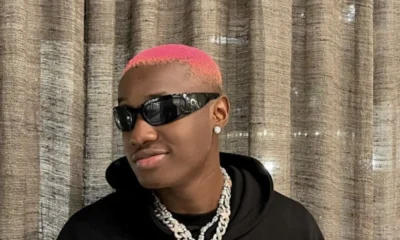By Olobe Yoyon
The new Netflix movie, Ẹlẹ́ṣin Ọba, the King’s Horseman is another adaptation of Wọlé Ṣóyínká timeless 1975 play, Death and the King’s Horseman. The play was inspired by Dúró Ládipọ̀’s 1964 play, Ọba Wàjà (The King is dead).
Both plays are based on a real incident which unsettled the ancient city of Ọ̀yọ́ when a British civil servant prevented the sacrificial suicide of a town chief, Ẹlẹ́ṣin, who was ritually prepared to obey custom and follow his late king to the grave.
In Ọba Wàjà, Dúró Ládipọ̀ tells the story of one Abọ́bakú (one who is required by custom to die with the king) who due to the intervention of a British District Officer, became doubtful of the duty of his office, a most shameful thing to his honour and his family.
Dáwódù, Ẹlẹ́ṣin’s son was disgusted by his father behaviour in breaking faith with tradition. He decided to take upon himself the burden of the office and do the needful. He insulted his father till his last breath, for being cowardly.
Ẹlẹ́ṣin took his life as he was supposed to, however his honour was already gone, and he had also lost his first son. “This is the white man’s doing,’ he cried, ‘the British official, trying to save one life, has caused two deaths.”
Ṣóyínká’s Death and the King’s Horseman is set in the Ọ̀yọ́ Kingdom in south-west Nigeria in the early 1940s. Ọ̀yọ́ tradition demands that Ẹlẹ́ṣin Ọba, the king’s horseman, must commit suicide before the king is buried in order for his spirit to lead the king’s to the great beyond.
However, Ẹlẹ́ṣin Ọba failed in his duty. The story ends on a tragic note, his son, Olunde, has to return from studying medicine abroad to commit suicide in place of his father.
The importance and impact of this story cannot be overemphasised. It has been performed in many countries across the world.
The theme of the clash of cultures continues to resonate with people and further enlightens audiences about colonialism, that no culture is superior to another.
In this Netflix film, the richness of Yoruba culture, its language, music, fashion, dance, proverbs etc, are brought to life. Kudos to late Biyi Bandele for the job well done.
The main lessons from the story include:
As a person, you have a sense of duty to your ancestors and your people.
To Europeans represented by Mr Pilkings and his wife, if you do not understand a culture, ignorance is not a crime but conduct arising from ignorance can be. Be humble enough to ask why things are being done the way custodians of tradition do their things even if they sound ridiculous to you.
A great inspiration should be drawn from the character of Olunde, the British educated son of Ẹlẹ́ṣin Ọba who trained in England as a medical doctor. In spite of his western education, he still understands his culture and his family ties.
Whatever you do, do not abandon your mother tongue. Do not trample on your tradition. Do not throw away your culture. Do not mock our Òrìṣà and Irúnmọlẹ̀.
N.B: Culture is not static, it is in a state of constant flux. Some of our old traditions are no longer relevant in today’s world. We have rightly long abandoned the practice of ritual suicide in Yorubaland.
I watched the film in Yoruba and I love it. Will try the English voice over tomorrow.
Ire o.
Like this:
Like Loading...
Related

 Entertainment4 weeks ago
Entertainment4 weeks ago
 Entertainment4 weeks ago
Entertainment4 weeks ago
 celebrities4 weeks ago
celebrities4 weeks ago
 Entertainment3 weeks ago
Entertainment3 weeks ago
 Entertainment4 weeks ago
Entertainment4 weeks ago
 Entertainment4 weeks ago
Entertainment4 weeks ago
 celebrities4 weeks ago
celebrities4 weeks ago
 celebrities3 weeks ago
celebrities3 weeks ago


















